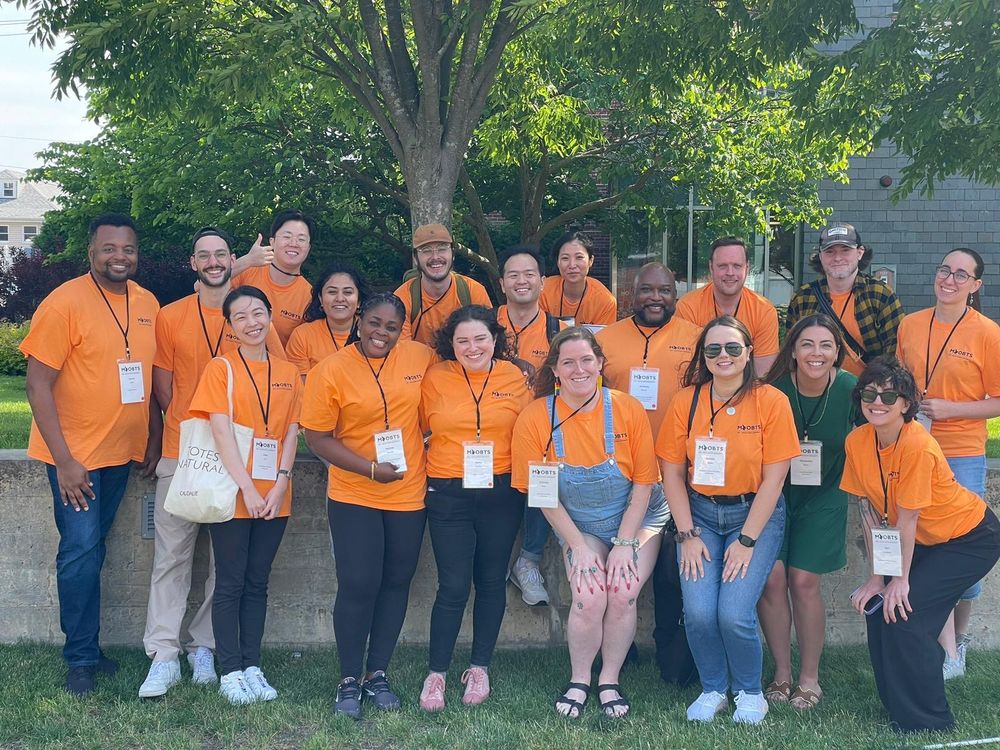
But this recent article suggests that browsing the web can actually boost creativity, likely by increasing knowledge acquisition... as long as job demands aren’t too high.
Link: doi.org/10.1002/job....

But this recent article suggests that browsing the web can actually boost creativity, likely by increasing knowledge acquisition... as long as job demands aren’t too high.
Link: doi.org/10.1002/job....


Introverts shouldn’t be expected to act like extraverts, so how do we address the ways workplaces may unintentionally penalize them?

Introverts shouldn’t be expected to act like extraverts, so how do we address the ways workplaces may unintentionally penalize them?
How does this compare to your experiences?

How does this compare to your experiences?
In this study, researchers trained an LLM to analyze social media posts and found that feeling controlled by AI increased stress, but working *with* AI buffered these effects: doi.org/10.1002/job....

In this study, researchers trained an LLM to analyze social media posts and found that feeling controlled by AI increased stress, but working *with* AI buffered these effects: doi.org/10.1002/job....
A new meta-analysis finds it slightly lowers work interfering with family but not the other way around. Men seemed to benefit, but women didn’t—likely because they used the flexibility to juggle more non-work responsibilities.
doi.org/10.1007/s415...

A new meta-analysis finds it slightly lowers work interfering with family but not the other way around. Men seemed to benefit, but women didn’t—likely because they used the flexibility to juggle more non-work responsibilities.
doi.org/10.1007/s415...
The authors take on myths like “leadership is always good” or “we know a leader when we see one” and offer more evidence-based ways of thinking. Worth a read!

The authors take on myths like “leadership is always good” or “we know a leader when we see one” and offer more evidence-based ways of thinking. Worth a read!
Contrary to some recent headlines, it’s actually pretty good! Here are a few highlights from a recent meta-analysis 🧵, available here: doi.org/10.1037/apl0...

Contrary to some recent headlines, it’s actually pretty good! Here are a few highlights from a recent meta-analysis 🧵, available here: doi.org/10.1037/apl0...
In this study, researchers found that quality matters. Truthful, interesting gossip boosted mood and made people more willing to help the sender. But too much gossip? That had the opposite effect.
Link: onlinelibrary.wiley.com/doi/10.1111/...

In this study, researchers found that quality matters. Truthful, interesting gossip boosted mood and made people more willing to help the sender. But too much gossip? That had the opposite effect.
Link: onlinelibrary.wiley.com/doi/10.1111/...
“Boomers are set in their ways.”
We’ve all heard these stereotypes, but do they hold up? More evidence that generational differences are a myth: link.springer.com/article/10.1...
Plus, this excerpt... 👀

“Boomers are set in their ways.”
We’ve all heard these stereotypes, but do they hold up? More evidence that generational differences are a myth: link.springer.com/article/10.1...
Plus, this excerpt... 👀
It’s a powerful reminder of the gap between what works (structure, standardization) and what we often rely on—subjective feelings of “fit.”

It’s a powerful reminder of the gap between what works (structure, standardization) and what we often rely on—subjective feelings of “fit.”
I’ll share a few thoughts below 🧵, but here’s a link to the full study: doi.org/10.1037/apl0...

I’ll share a few thoughts below 🧵, but here’s a link to the full study: doi.org/10.1037/apl0...

Barker, J. R. (1993). Tightening the iron cage: Concertive control in self-managing teams. Administrative Science Quarterly, 38(3), 408–437.
As one of the first papers we read in my PhD program, it was a memorable introduction to organizational science.

Barker, J. R. (1993). Tightening the iron cage: Concertive control in self-managing teams. Administrative Science Quarterly, 38(3), 408–437.
As one of the first papers we read in my PhD program, it was a memorable introduction to organizational science.


Greater political diversity in an organization generally led to more dissatisfaction, *especially* during election years.
What do you think will happen this year?

Greater political diversity in an organization generally led to more dissatisfaction, *especially* during election years.
What do you think will happen this year?
I learned about best practices, met leading educators and scholars, and had the honor of participating in the Doctoral Institute with an incredible cohort of future leaders.
Shout-out to OS alum Alex Dunn for coordinating the institute!

I learned about best practices, met leading educators and scholars, and had the honor of participating in the Doctoral Institute with an incredible cohort of future leaders.
Shout-out to OS alum Alex Dunn for coordinating the institute!
A recent study found that it wasn't the duration or unpredictability of the commute, but the quality (eg, how uncomfortable it was). And while these negatively affected worker attitudes, they didn't impact performance.
Link: link.springer.com/article/10.1...

A recent study found that it wasn't the duration or unpredictability of the commute, but the quality (eg, how uncomfortable it was). And while these negatively affected worker attitudes, they didn't impact performance.
Link: link.springer.com/article/10.1...
Read more here: link.springer.com/article/10.1...

Read more here: link.springer.com/article/10.1...

